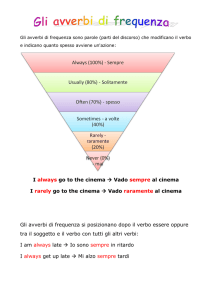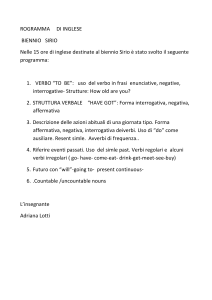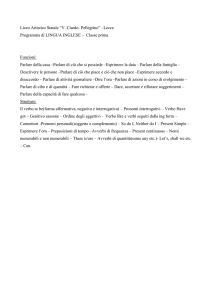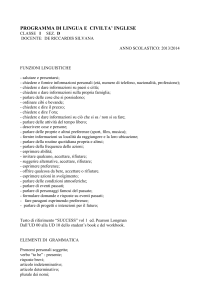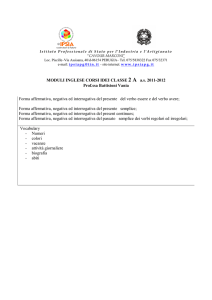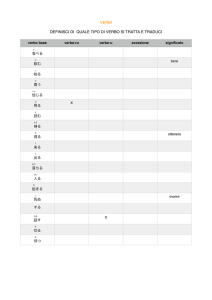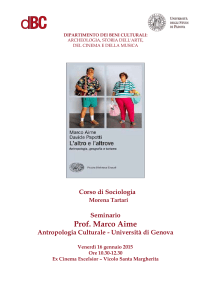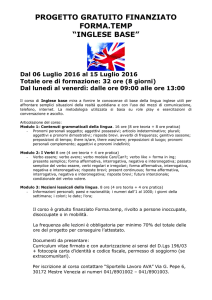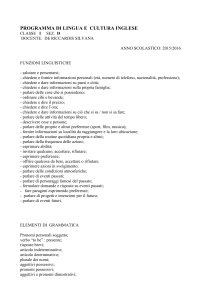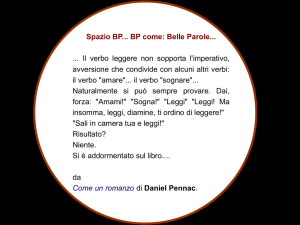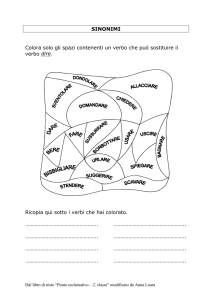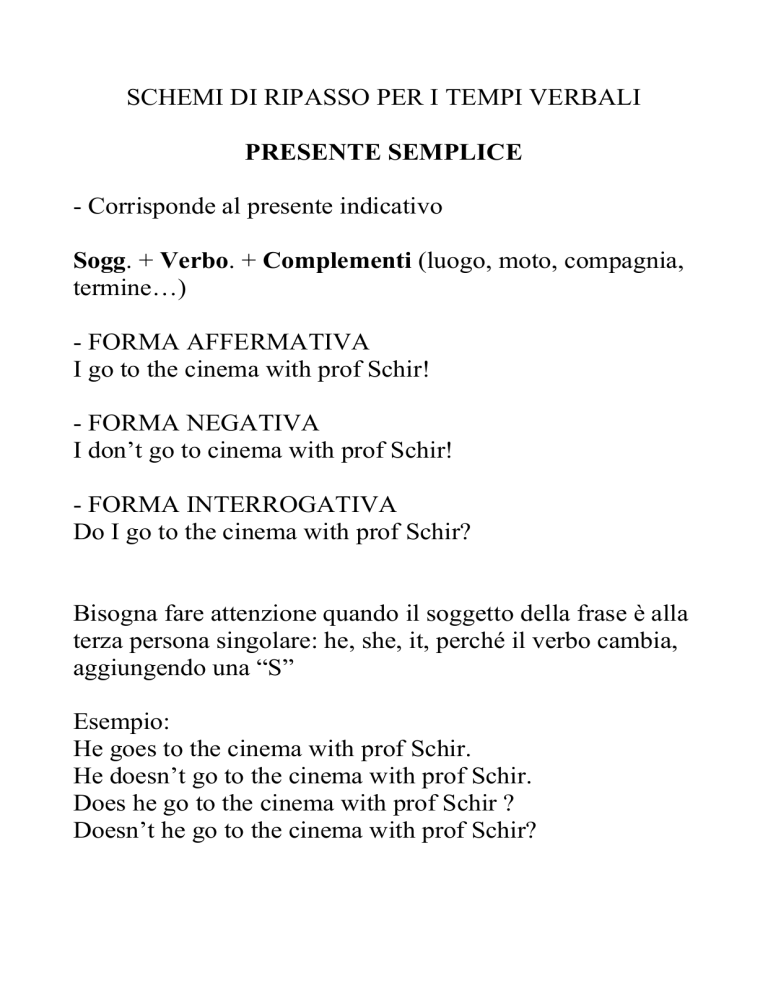
SCHEMI DI RIPASSO PER I TEMPI VERBALI
PRESENTE SEMPLICE
- Corrisponde al presente indicativo
Sogg. + Verbo. + Complementi (luogo, moto, compagnia,
termine…)
- FORMA AFFERMATIVA
I go to the cinema with prof Schir!
- FORMA NEGATIVA
I don’t go to cinema with prof Schir!
- FORMA INTERROGATIVA
Do I go to the cinema with prof Schir?
Bisogna fare attenzione quando il soggetto della frase è alla
terza persona singolare: he, she, it, perché il verbo cambia,
aggiungendo una “S”
Esempio:
He goes to the cinema with prof Schir.
He doesn’t go to the cinema with prof Schir.
Does he go to the cinema with prof Schir ?
Doesn’t he go to the cinema with prof Schir?
PASSATO SEMPLICE
Esso traduce tre tempi verbali italiani:
Passato prossimo, es. Ho mangiato; Essi hanno giocato;
Tu sei stato.
Passato remoto, es. Mangiai; Bevesti; Andarono
Imperfetto, es. Cantavo; Giocavi; Dormivano
PASSATO DEI VERBI REGOLARI
Forma affermativa
I changed the battery of my computer.
Forma negativa del verbo regolare al passato:
I did not (didn’t) change the battery.
Forma interrogativa del verbo irregolare del passato:
Did I change the battery of my computer?
PASSATO DEI VERBI IRREGOLARI
Forma affermativa
Martina bought a new pair of shoes on sale
Forma negativa del verbo irregolare al passato:
Martina did not (didn’t) buy a new par of shoes on sale.
Forma interrogativa del verbo irregolare del passato:
Did Martina buy a new par of shoes on sale?

